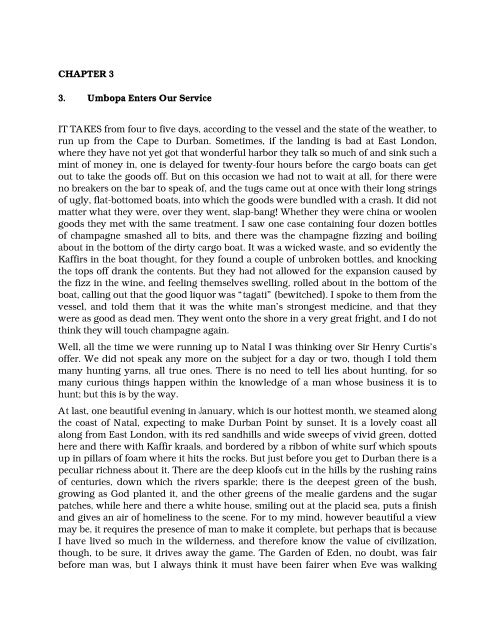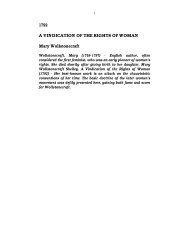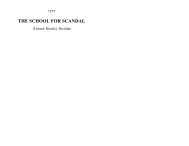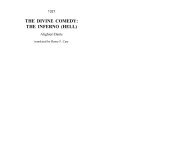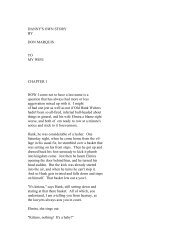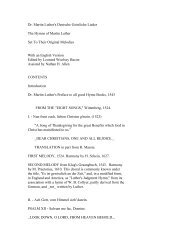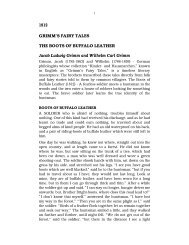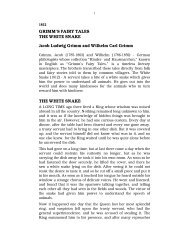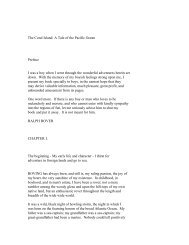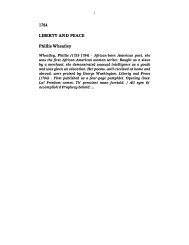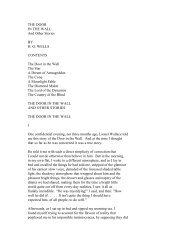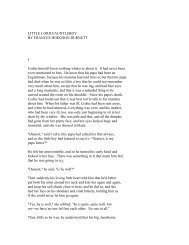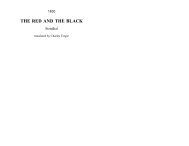1885 KING SOLOMON'S MINES H. Rider Haggard - Pink Monkey
1885 KING SOLOMON'S MINES H. Rider Haggard - Pink Monkey
1885 KING SOLOMON'S MINES H. Rider Haggard - Pink Monkey
Create successful ePaper yourself
Turn your PDF publications into a flip-book with our unique Google optimized e-Paper software.
CHAPTER 3<br />
3. Umbopa Enters Our Service<br />
IT TAKES from four to five days, according to the vessel and the state of the weather, to<br />
run up from the Cape to Durban. Sometimes, if the landing is bad at East London,<br />
where they have not yet got that wonderful harbor they talk so much of and sink such a<br />
mint of money in, one is delayed for twenty-four hours before the cargo boats can get<br />
out to take the goods off. But on this occasion we had not to wait at all, for there were<br />
no breakers on the bar to speak of, and the tugs came out at once with their long strings<br />
of ugly, flat-bottomed boats, into which the goods were bundled with a crash. It did not<br />
matter what they were, over they went, slap-bang! Whether they were china or woolen<br />
goods they met with the same treatment. I saw one case containing four dozen bottles<br />
of champagne smashed all to bits, and there was the champagne fizzing and boiling<br />
about in the bottom of the dirty cargo boat. It was a wicked waste, and so evidently the<br />
Kaffirs in the boat thought, for they found a couple of unbroken bottles, and knocking<br />
the tops off drank the contents. But they had not allowed for the expansion caused by<br />
the fizz in the wine, and feeling themselves swelling, rolled about in the bottom of the<br />
boat, calling out that the good liquor was “tagati” (bewitched). I spoke to them from the<br />
vessel, and told them that it was the white man’s strongest medicine, and that they<br />
were as good as dead men. They went onto the shore in a very great fright, and I do not<br />
think they will touch champagne again.<br />
Well, all the time we were running up to Natal I was thinking over Sir Henry Curtis’s<br />
offer. We did not speak any more on the subject for a day or two, though I told them<br />
many hunting yarns, all true ones. There is no need to tell lies about hunting, for so<br />
many curious things happen within the knowledge of a man whose business it is to<br />
hunt; but this is by the way.<br />
At last, one beautiful evening in January, which is our hottest month, we steamed along<br />
the coast of Natal, expecting to make Durban Point by sunset. It is a lovely coast all<br />
along from East London, with its red sandhills and wide sweeps of vivid green, dotted<br />
here and there with Kaffir kraals, and bordered by a ribbon of white surf which spouts<br />
up in pillars of foam where it hits the rocks. But just before you get to Durban there is a<br />
peculiar richness about it. There are the deep kloofs cut in the hills by the rushing rains<br />
of centuries, down which the rivers sparkle; there is the deepest green of the bush,<br />
growing as God planted it, and the other greens of the mealie gardens and the sugar<br />
patches, while here and there a white house, smiling out at the placid sea, puts a finish<br />
and gives an air of homeliness to the scene. For to my mind, however beautiful a view<br />
may be, it requires the presence of man to make it complete, but perhaps that is because<br />
I have lived so much in the wilderness, and therefore know the value of civilization,<br />
though, to be sure, it drives away the game. The Garden of Eden, no doubt, was fair<br />
before man was, but I always think it must have been fairer when Eve was walking


